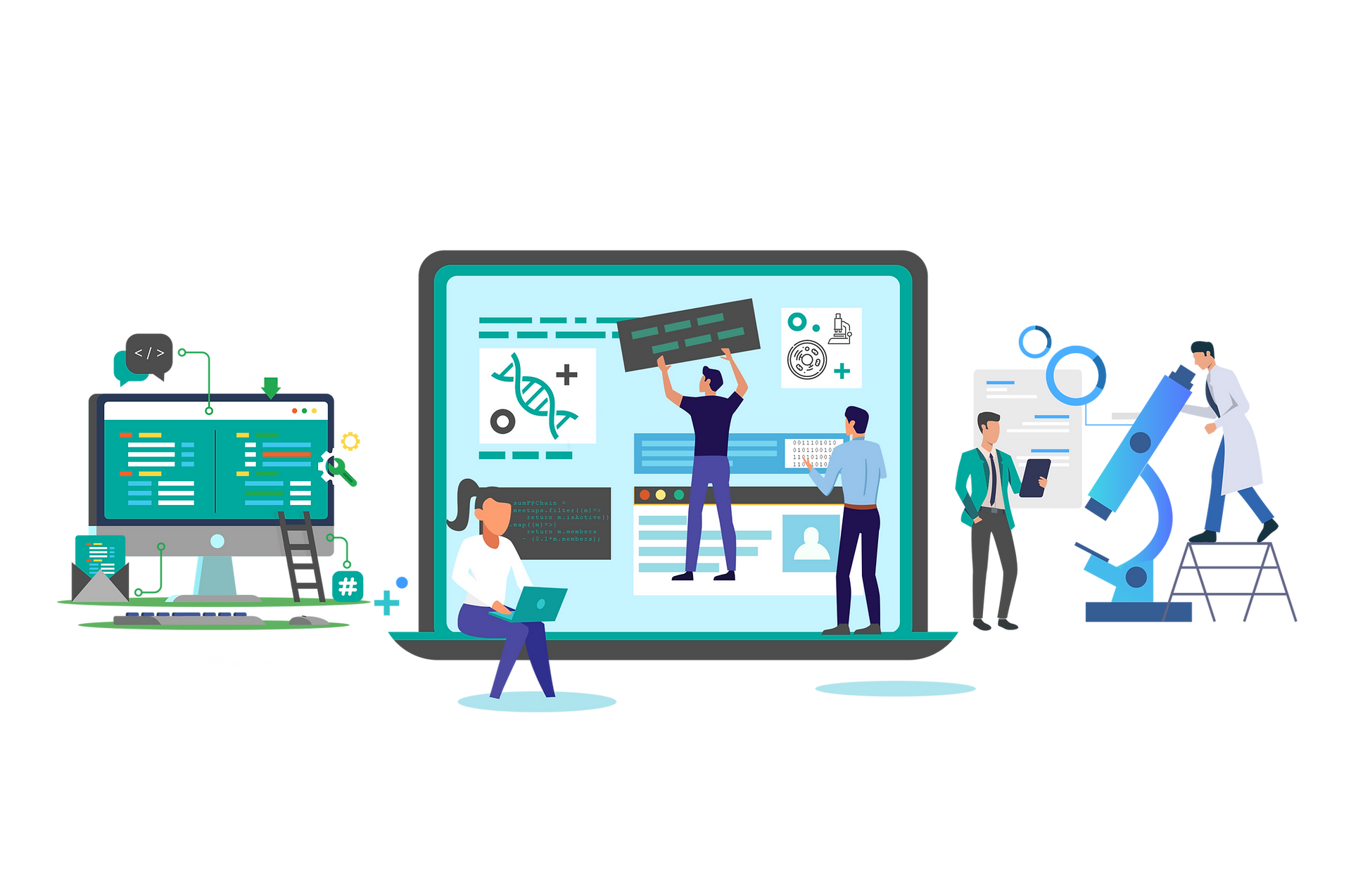
Phenomics is the systematic study of phenotypes. As such, it is a transdisciplinary area of research that involves biology, data sciences, engineering and other fields. Phenomics is concerned with the measurement of phenomes where a phenome is the set of phenotypes (physical and biochemical traits) that can be produced by a given organism over the course of development and in response to genetic mutation and environmental influences. Phenomics concepts are used in functional genomics, pharmaceutical research, metabolic engineering, agricultural research, and increasingly in phylogenetics.
In plant sciences, phenomics research occurs in both field and controlled environments. Field phenomics encompasses the measurement of phenotypes that occur in both cultivated and natural conditions, whereas controlled environment phenomics research involves the use of glass houses, growth chambers, and other systems where growth conditions can be manipulated. Phenomics is the systematic measurement and analysis of qualitative and quantitative traits, including clinical, biochemical, and imaging methodologies, for the refinement and characterization of a phenotype. Phenomics requires both “deep phenotyping,” referring to a thorough collection of a wide breadth of accurate and precise phenotypes, and “phenomic analysis,” referring to evaluation of patterns and relationships between genotype–phenotype associations and between individuals with related phenotypes. Multidimensional data, including clinical, biochemical, genetic, and pharmacological response data, can be visualized using heat maps and analyzed using clustering algorithms.
Phenotyping technological advances have been commonly used to screen collections of germplasm in order to predict phenotype based on the genetic markers. This approach is called “genetic symptoms”. This screening provides the relationships between phenotypic traits and biotic or abiotic effects on the phenotype.
Automatic and high-throughput phenotyping platforms have been developed to study crop improvement in response to climate conditions. Discovering the background variation, relationships between traits, and plant growth behaviors are some of the highlight findings from phenomics. Analyzing phenotyping platforms helps researchers to relate multi-parametric phenotypic information to genetic variability. Automated imaging methodologies, as the ideal tool, are used to obtain non-destructive phenotypic data for quantitative studies, such as growth, tolerance, resistance, physiology, and yield.
Phenomics can help us to understand how our environment makes us more or less susceptible to a wide range of common diseases and how and why certain individuals react to therapies and treatments differently.
Phenomics could also be used to develop personalized medicine.
Forensic DNA phenotyping (FDP) is a new technology aiding criminal investigations that enables authorities to draw conclusions on a suspect’s physical characteristics (that make up their phenotype) from discovered DNA. The phenotypic traits this technology can determine include appearance, biological age and bio-geographical ancestry. The findings can then be used to identify unknown perpetrators or help in missing-persons cases.
Computational approaches are being developed to gather, compare and process phenomics data. Machine learning methods are used for analyzing images such as satellite images of plants, medical histology images and words describing medical conditions. For comparison of phenotypes across different organisms, formal ontologies are implemented that are accessible to automated reasoning.
Phenotypes arise from the interaction between genes within a genome, and the environment. This is a highly complex interaction, for studying the phenomics of neuropsychiatric illnesses, this includes studying how the neural and cognitive systems work, and then trying to decipher how the genome links to these differences in the phenotype.

